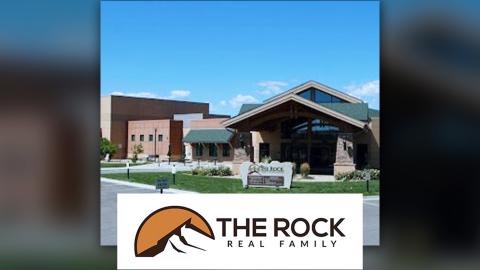
Hatred in the Hallways: Our Call as Christians to Fight Antisemitism in Schools
ANALYSIS
Teenagers today are up against a lot. We know this. The CDC recently declared that the mental health of teenage girls is a critical situation, and the U.S. Surgeon General has called the mental well-being of teens “the defining public health crisis of our time.” Children and teenagers live in a digital age that puts an immense weight on their shoulders, and they’re often caught in the midst of the culture wars of their seniors.
The newest, somewhat unknown opponent they’re up against at school today? Antisemitism.
Antisemitism is on the rise across the country – last year’s numbers of antisemitic incidents were the highest they’ve been in 40 years. It’s also, alarmingly, growing in K-12 schools, where it’s graffitied onto elementary schools and threatens students within them.
According to the ADL’s recent audit of antisemitism, antisemitic incidents of harassment, vandalism and assault in middle and high schools skyrocketed by 49% last year. College campus incidents of violence also went up by 41%.
Many anti-Jewish incidents in schools included “classmates taunting Jewish students with Holocaust jokes and references,” and frequent use of swastikas. In one class, a student shouted, “If anyone celebrates Yom Kippur today, you can die!” Vandalism also ran rampant last year, with phrases like “Kill all Jews” and “Hitler was right” showing up on bathroom stall walls or in classrooms.
Beyond the fear of possible physical harm, Jewish students also face emotional harm when it comes to the experiences of their people and heritage. One student, whose great-grandparents escaped the Nazis, saw the phrase “Jews Not Welcome” painted at the entrance of a Maryland high school and reflected, “It’s like you carry all your family’s grief with you, and I felt all of that with me when I saw it… It was super scary.” This apprehension is something that Jewish students reckon with every day as they walk into school.
Hurt, pain and violence are everywhere we look in our fallen world, and teens feel that. They often know and understand far more than we give them credit for. And they’re also strong – standing up for a classmate in a high school hallway can feel like going into battle, but so many students are willing to take a stand and be courageous to fight hatred.
As Christians, we have a calling and a duty to step into this troubling issue. We can make a difference by walking alongside our children and teenagers when they see anti-Jewish hate in their schools. We can help equip and educate them so they can stand with their Jewish classmates. We can set a precedent of care and love through the way we engage with it ourselves.
Firstly, education is a vital part of combating antisemitism. We can’t resist what we don’t know. Compassionately teaching the next generation about the horrific stories and impact of the Holocaust is just the foundation of having a future with less anti-Jewish hate. Knowing not only the facts but also the stories – the heroes of the Holocaust who sacrificed so much to stand up for justice – is deeply important to being a generation that will not tolerate hate against the marginalized.
These are heroes like Corrie Ten Boom, whose family hid Dutch Jews in their home because they refused to bend to the anti-Jewish hatred that seeped into their society under Nazi rule. Or Frank Foley, a British spy who issued visas, forged passports, and broke German immigration laws to save an estimated 10,000 Jewish people from the Nazis.
It wasn’t only adults who took a stand – knowing stories like Anne Frank's can help our teens to know their role in caring for those around them and understanding that their voice matters, too.
I’ve seen firsthand the need to educate the next generation in the hope that they will change the culture and eliminate anti-Jewish hate for generations to come.
Derek Black’s father was a grand wizard in the Ku Klux Klan, a member of the American Nazi Party and the founder of an influential white nationalist website. As he grew up, Derek followed in his father’s footsteps, even creating a kid’s version of his father’s website. However, when he got to college his story began to change.
After getting to know Derek, two of his Jewish classmates invited him to their home for their weekly Shabbat dinner. Over the next two years, as Derek got to know them and their stories, his views gradually changed, and eventually, he publicly renounced his racist and antisemitic beliefs. Relationships have the power to change lives, and choosing to engage rather than stand by silently can make all the difference in the world.
To help stop the spread of antisemitic hate in our schools, we must engage in these conversations ourselves. When we take the initiative to confront anti-Jewish tropes or derogatory comments, not staying silent but gently addressing unacceptable words and incidents, students notice and will have an example to follow.
The American church today is in a time of identity crisis, as rifts and divides make us investigate exactly who we are and who we want to be. We don’t want to stand on the sidelines and neglect caring for the hurt, the unjustly treated, and the marginalized. We want to be people who stand up against hate and stand for justice, and we want to empower today’s youth to do the same.
At Passages, we realize how important it is to engage students in these growing opportunities while they are in their developing years. We want to walk alongside them as they navigate this time, so we’re launching a high school program this spring to better know teenagers and take them on a trip to Israel to strengthen their faith.
The church is building a new future for itself, and our children are a big part of that. They are the church of tomorrow. Stepping into the issue of antisemitism and helping to care for this community is a chance to say yes to a hopeful future inside and outside of high school hallways.
Scott Phillips is the CEO of Passages, a nonprofit organization offering Christian college students a fresh and innovative approach to experiencing the Holy Land.



